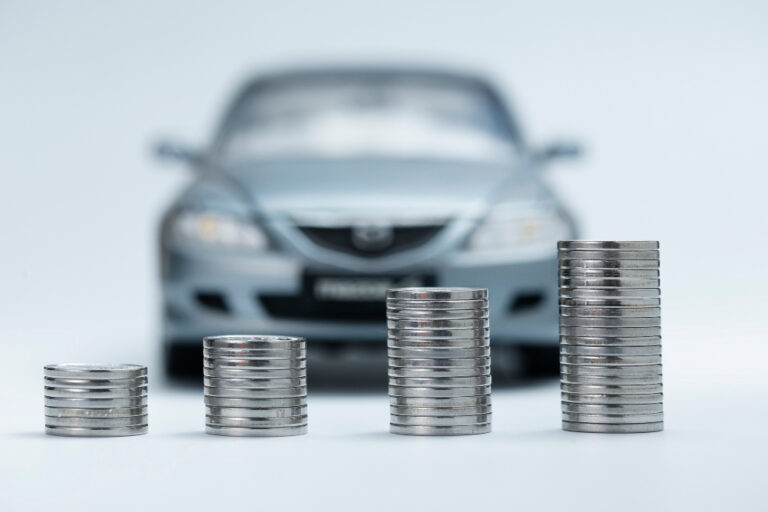Best personal loans can help you cover the cost of your house renovations, car, education, and many more expenses. When you are in the market, you need to choose between a variable and a fixed rate. You can choose depending on various factors like your budget, risk of rate rises, emergency fund, term of the loan, and creditworthiness. Let us understand which option is best for you on this topic.
What are fixed-rate car loans?
In fixed-rate car loans, the interest will remain the same throughout the life of the loan. Your funding will remain unaffected by any changes in the interest rates in the market. Whether the rates go up or down, you will pay the same interest amount as decided before. A fixed rate helps plan your monthly budget because you know that the repayments will remain the same for the entire life of your loan.
It means that any interest rate hikes will not affect you and your capacity to meet other financial commitments. On top of this, you will exactly know how much you will pay for the loan as principal and interest. For instance, consider a loan of $10,000 of 5% per annum for five years. Excluding any additional charges or balloon payments, the borrower will pay a sum of $12,500over five years.
In most cases of equipment financing, a penalty will get charged for paying off the loan before the agreed term. This penalty is to compensate for the loss of interest of the lenders. Extra payments will chip away the interest amount and reduce the loan term. However, you can check your agreement and find a lender who does not charge this penalty.
Pros and Cons of a fixed-rate car loan
A fixed-rate loan is considered the best personal loan because of its predictability. You will have the same rate of interest throughout the life of the loan. You know the exact value of your EMIs and thus, planning or doing the monthly budget is hassle-free. No need to worry about the hikes in the market and know exactly how much you owe to the lender each month.
A loan with a fixed interest rate may be disadvantageous to you in the long run. In comparison to a variable-rate car loan, these funds are expensive, and you will end up paying more. It may be hundreds or even thousands of extra dollars. You will not be able to reap the advantage of lower interest rates if the market sees a drop.
What are variable-rate car loans?
Another option for equipment financing or car funding is a variable interest rate loan. Here, the rate of interest is not fixed. Instead, it keeps changing over time in response to the market fluctuations. With the increase in the interest rate, your monthly payment rate and total repayment cost will also rise. The rate fixed at the begining of the loan does not remain the same throughout the funding term
Certain variable loans display a unique characteristic of locking your starting rate for a specific time and then making a transition to a changing rate. Variable student loans and credit cards can change the interest rate immediately. Although no one can determine the exact changes in variable interest rates, they do not increase significantly.
A varying rate of interest consists of an index and a margin. The index rate will vary with time because it depends on the economic conditions. The margin depends on your credit score and gets locked on the loan approval. It remains fixed throughout the life of the loan and does not change until you pay it off. You can get variable best personal loans to fund cars, for education, payout credit cards, and home renovations.
Pros and cons of a variable-rate car loan
When you take a variable-rate loan, you end up paying less over the long term. A loan with a variable rate of interest is less expensive compared to a loan with a fixed interest rate. While going by this route, you may see the rates decreasing throughout the loan term. Another advantage of this loan type is that there is no early exit or early repayment fees.
An increase in the interest rate is another possibility on the other side of the coin. An increase in interest rate means an increase in repayments. You may end up paying more, and this will also affect your other financial commitments. The interest rate is likely to change at any time, and you will not have any certainty about how much you will payback.
Which is better: Is it fixed or variable interest rate?
Studies show that borrowers pay a lesser amount in variable-rate equipment financing than that in a loan with a fixed rate. However, historical trends are not necessarily indicative of the market’s future performance. To know the impact of a changing rate, consider the amortization loan period. The impact of a change will be more on loans with extended amortization periods.
A variable-rate car loan, however, is not suitable for everyone. It indeed offers the benefits of low interest, but one should not forget that the rates may also go up. These loans are beneficial to the borrowers who can afford to take a risk.
Wrapping It Up
Consider your situation to analyze which car loan is better for you. Shop around and do your research among the top lenders in Australia.

